On May 1, nearly five hundred years ago, a new prisoner arrived at the Tower of London. Mark Smeaton was one of Henry VIII’s favorite musicians, perhaps twenty-three or twenty-four years old. By most accounts, he was brought to the Tower after being held overnight at Thomas Cromwell’s house where he confessed to adultery with Anne Boleyn. Various chroniclers reported the musician’s arrest and subsequent execution on May 17, 1536. They’ve left us with tidbits of information amid a swirl of rumor and lies.
In my novel, The Queen’s Musician, Mark Smeaton tells his own story as he watches the astonishing rise and fall of Anne Boleyn (Find out more below this post).
Since the book comes out May 27, I’ve been busy answering questions from bloggers and columnists. The most common is some version of “What gave you the idea for your book?” or “Why did you write about Mark Smeaton?”
Let me count the reasons
I can’t pinpoint a single factor, but three elements played a role.
The Tudors. I’ve been enthralled by them ever since I learned that an English king executed two of his wives—I was probably in grade school or junior high. Then I began watching Masterpiece Theater—Elizabeth R, The Six Wives of Henry VIII, Wolf Hall, Parts 1 & 2. What more can I say?
The musician. Listening to music is a joy for me, and I’m intrigued that Mark Smeaton was a court musician. My guess is that he was exceptional, a highly-skilled and gifted performer. Playing for the king and queen, he had the Tudor equivalent of a major recording contract.
The miscarriage of justice. Based on what I’ve read, he was innocent, a pawn in the conspiracy to bring down Anne Boleyn. The injustice of his situation motivated me to write.

Answering these questions about my own novel made me wonder how some of my favorite writers would respond. Here’s what I discovered:
Hilary Mantel (1952-2022): The Wolf Hall Trilogy
Mantel’s fascination with Thomas Cromwell began in her twenties, and she pinpointed two specific reasons for writing her trilogy. First, she disliked the conventional portrayals of Cromwell as the king’s thuggish, villainous fixer. Second, the more she read, the more she focused on the gaps. In her memoir, she wrote: “So many interpretations, so many choices, so much detail to be sifted, so much material: but then, suddenly, no material, only history’s silences, erasures.” These “silences” and “erasures” tempted her.
I’ve also been uncomfortable with some depictions of Mark Smeaton—when he’s presented solely as a pathetic victim or used as a pretext for including a torture scene. And like Mantel, I was curious about what’s missing. So little is known about him. How did he see the world? He regularly entertained Henry VIII and Anne Boleyn in private settings. What did he think of them?
Robert Harris: An Officer and a Spy
Harris has written hypnotic thrillers set in Rome (Imperium and Pompeii), Restoration England (Act of Oblivion), World War II (Fatherland) and modern times (Conclave). Given his astonishing versatility, I was curious about how he develops his ideas. My own sense is that Harris, more than anything, relishes a gripping story. He casts his eye across history looking for the juiciest possibilities.
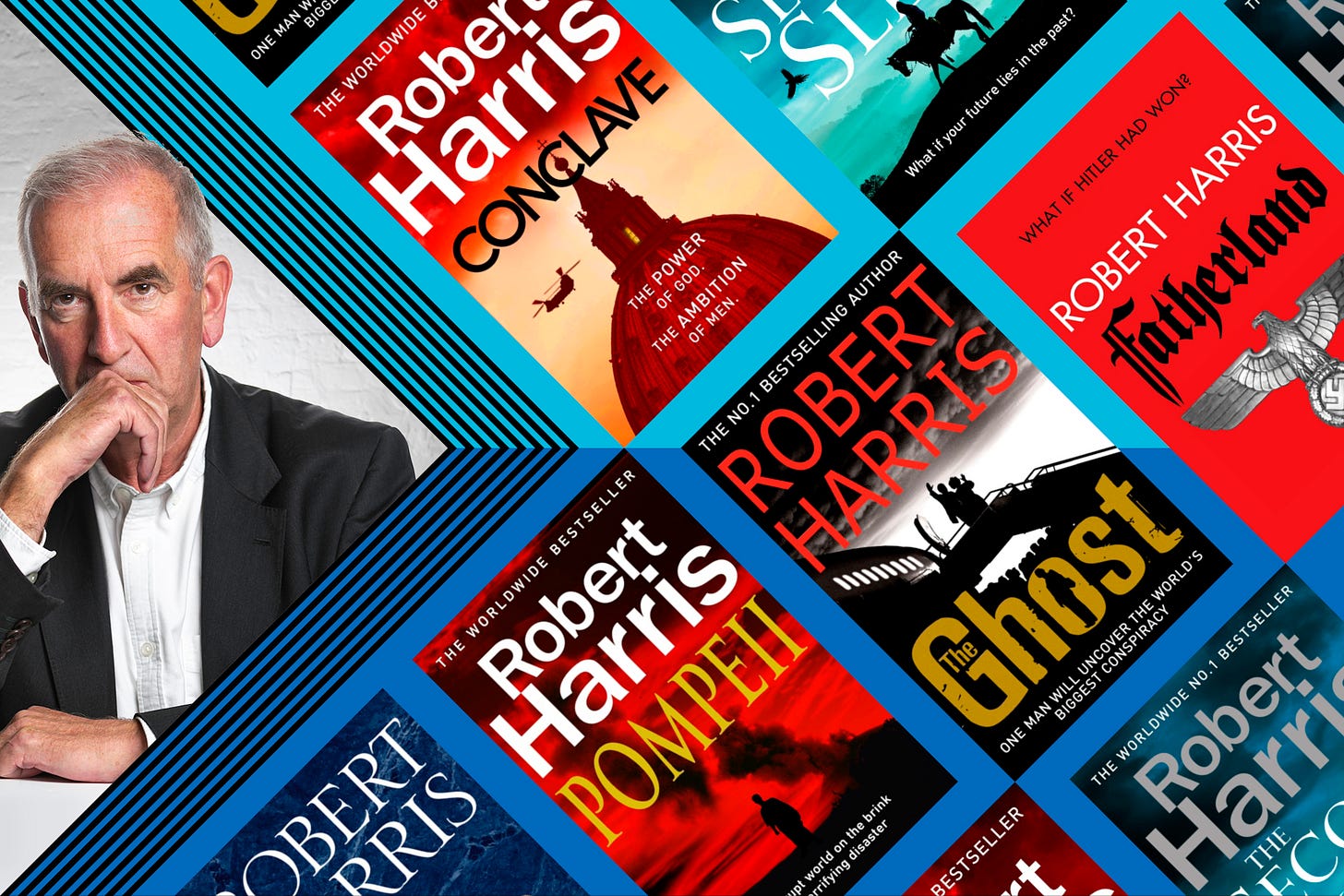
I read An Officer and a Spy a few years ago and loved its subtlety and turn-of-the-century ambience. The novel revisits the Dreyfus Affair from the perspective of Colonel Georges Picquart, the well-placed whistle-blower who exposed the cover-up that unjustly convicted the Jewish officer. Harris spoke about his material in 2013: “If the Dreyfus affair didn't already exist, no novelist would dare to invent it. It's a tale of heroes and scoundrels. Of documents rescued from rubbish bins and pieced back together. Of society affairs and gay liaisons between German and Italian diplomats.”
Yet what makes An Officer and a Spy so extraordinary is its layered examination of Picquart’s world: "That's what I most enjoy doing in fiction," [Harris explained]. "To take something that's real—a collection of facts—and then think about them carefully. I feel like one of those people who's lowered into a complex of caves with a light in my helmet. Just with this one light, this one point of view, I can explore this vast subterranean world. Bring it alive for myself, and hopefully bring it alive for the reader."
This author’s passion for his subject spills out into his words. I can identify with them. Like the Dreyfus Affair, Anne Boleyn’s history is infamous. It has generated novels, films, TV series, plays, an opera, and the hit musical, Six. Like Harris, my aim was to retell a well-known tale from a new vantage point. I could echo Harris’s goal—to take “something’s that real” and bring it “alive for myself and hopefully bring it alive for the reader.”
C. J. Sansom (1952-2024): The Matthew Shardlake Mysteries
I adore Sansom’s superbly intelligent Tudor detective stories. This is hardly news to my regular readers. And wouldn’t you know? It turns out that Sansom, too, regards The Six Wives of Henry VIII as one of his inspirations. I assume he watched it on the BBC. I had to wait until it was rebroadcast in America on Masterpiece Theater.

In his comments on the series, Sansom noted the friction between human nature and history’s seismic shifts: The Tudors may seem very different, but “human feelings remain the same [even if] people’s beliefs and ideologies change utterly over time. That series sparked off my interest in that period of great change.” Yes, me too.
Loyalty to their characters
All three of these amazing novelists looked at history anew. They all show a deep affection and respect for their characters. Novelists are sometimes accused of “falling in love” with their protagonists, and I expect that’s fairly common. You do spend a lot of time with them.
I can only hope that a few small sprinklings of these novelists’ wondrous gifts have rubbed off on me. I’ve been inspired by them—and schooled by them—as I’ve attempted to speak for Mark Smeaton and do my best for him.
And now, over to you. Do you know what inspired the author of your all-time favorite novel? What inspires you to write?
THE QUEEN’S MUSICIAN—COMING MAY 27, 2025. AVAILABLE FOR PRE-ORDER NOW.
A glamorous queen, a volatile king, a gifted musician concealing a forbidden romance. Everyone knows Anne Boleyn’s story. No one knows Mark Smeaton’s.
On May 17, 1536, a young court musician was executed, accused of adultery and treason with the queen. Most historians believe both he and Anne Boleyn were innocent—victims of Henry VIII’s rage.
Kirkus Reviews
“Original and worthwhile . . . A thoughtful, dramatically gripping work of historical fiction.”
BookLife Reviews
“Little is known about Mark Smeaton beyond his tragic fate. Yet Johnson imbues him with depth and dignity, transforming a historical footnote into a fully realized character whose story lingers long after the final page.”
Five Stars from Readers’ Favorite
“In one of the most savage moments in history . . . a heartfelt and thoughtful tale of the fragility of love. Very highly recommended.”
Five Stars from Whispering Stories
“The background research necessary to weave together fact and fiction has been extremely well done . . . The scene-setting was excellent.”
Helene Harrison, Tudor Blogger
“A brilliant book which captures the uncertainty and fear of the late 1520s and 1530s . . . an emotional story told very skillfully.”
Stephanie Cowell, author of The Boy in the Rain and Claude & Camille
“In the terrifying free fall of Queen Anne Boleyn . . . innocent men will be condemned. . . . Beautifully written and impossible to put down. I had tears in my eyes.”
Claire Ridgway, author of The Fall of Anne Boleyn: A Countdown
"A captivating and deeply moving retelling of Anne Boleyn’s dramatic fall . . . This beautifully written novel brings history to life with such emotional depth that it brought me to tears."

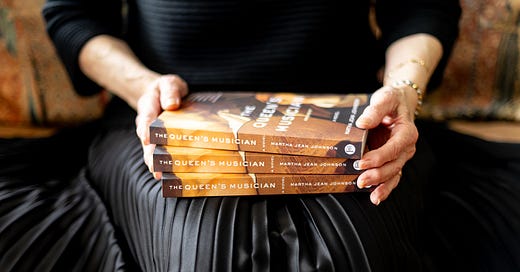


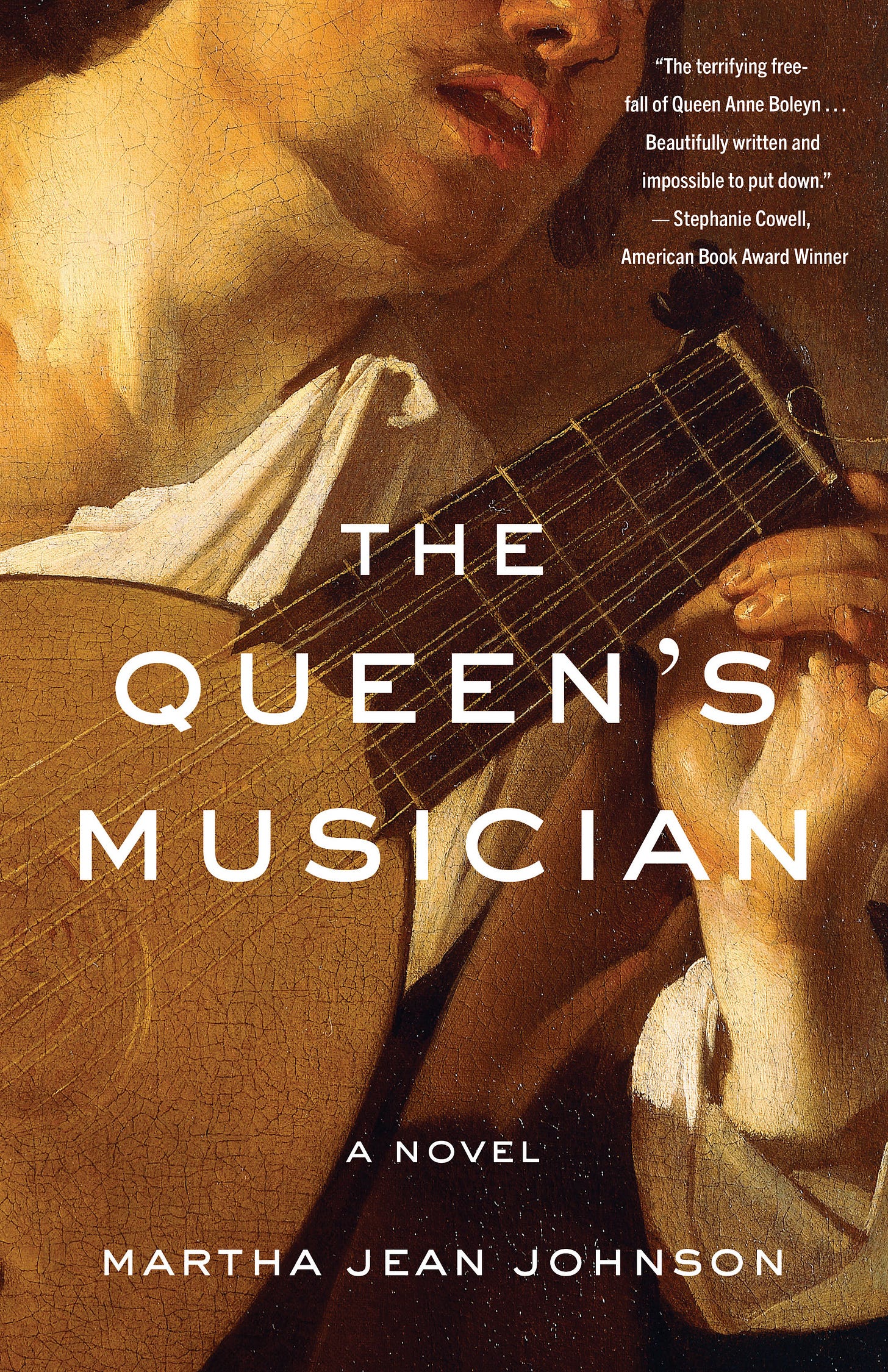
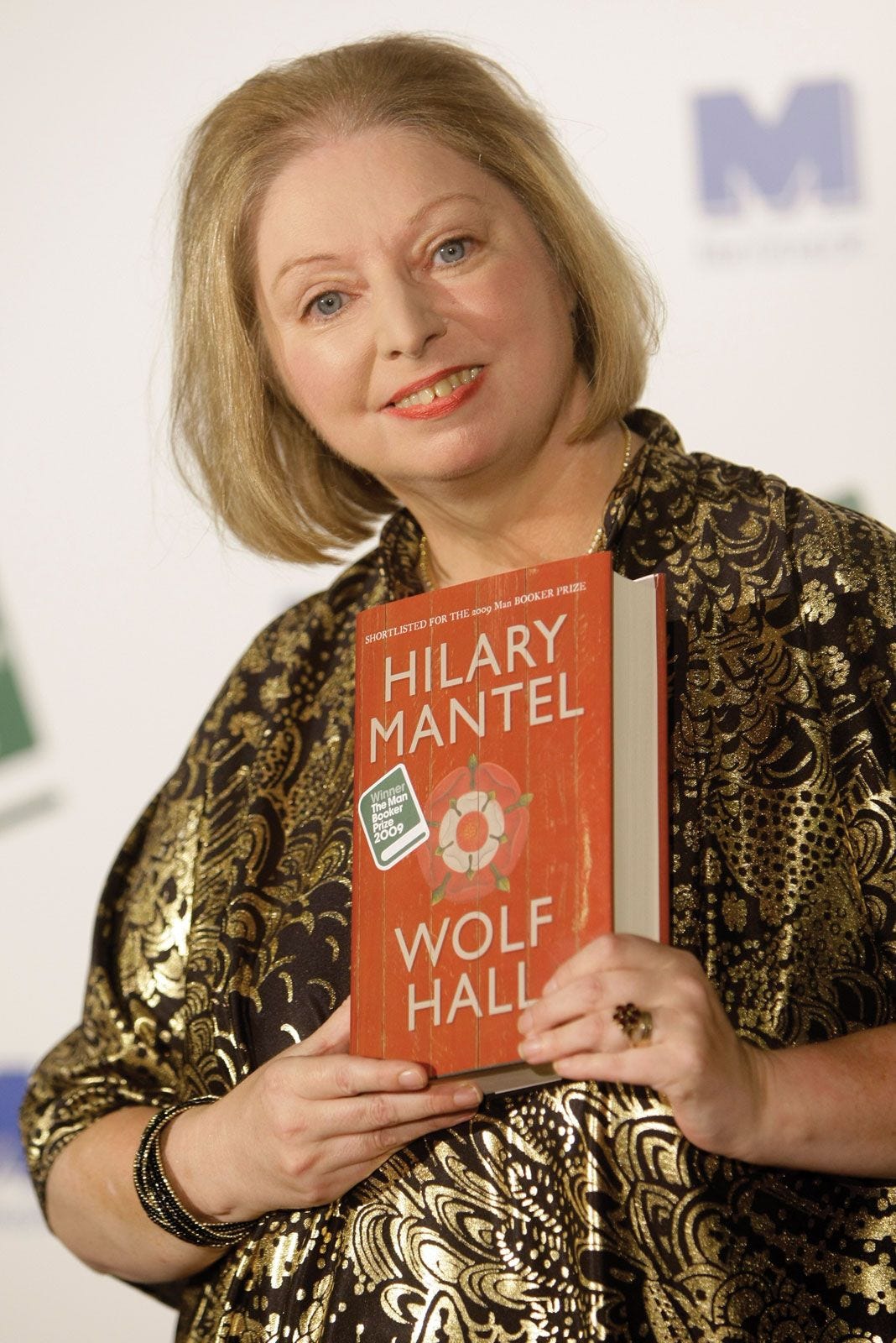

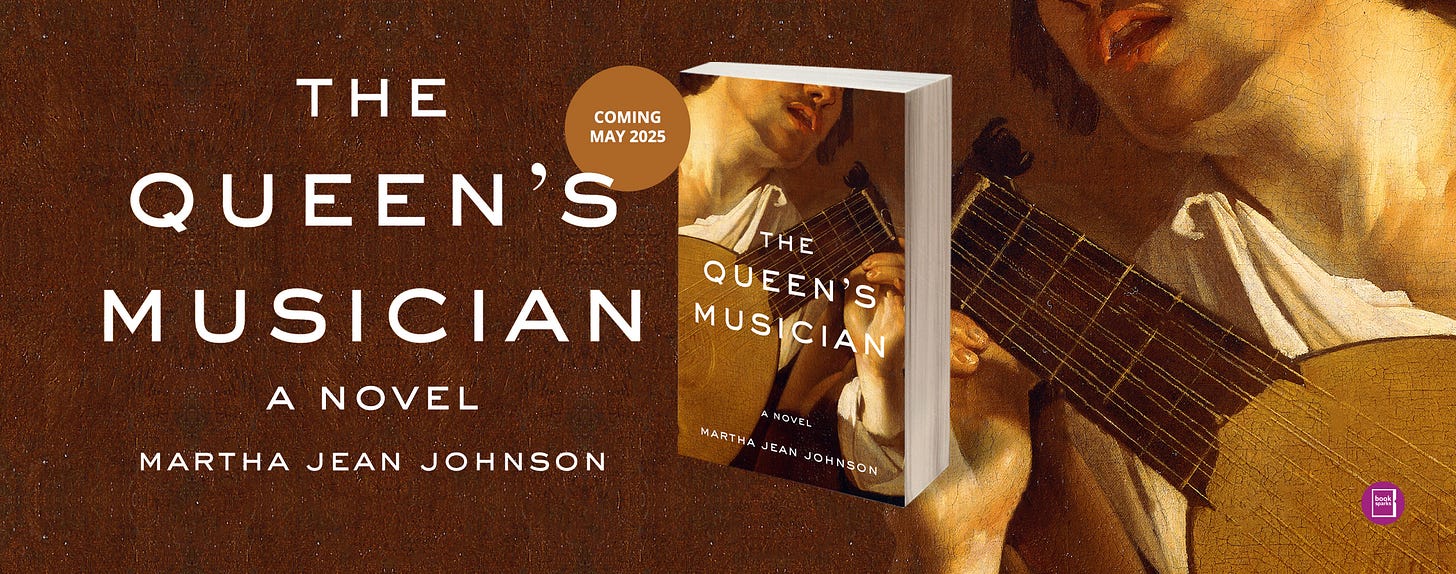
I think you were also drawn to Sansom because of his cat!
I can't wait to read your novel! Such an interesting premise to contemplate. You have me eager to know more about this musician and his relationship to Anne Boleyn. I'm always inspired to write by questions I can't find the answers to easily.